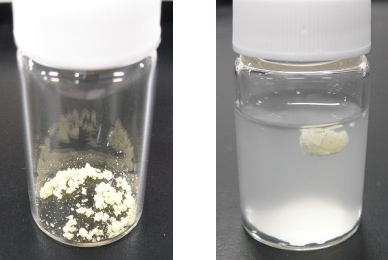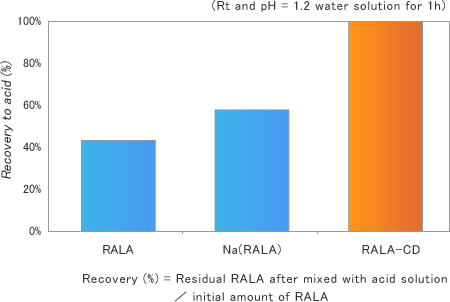No. 21 RALA-CD Alpha Lipoic acid γ-cyclodextrin complex
What is α-Lipoic acid?
Alpha-Lipoic acid (ALA) is one of the Coenzyme in human metabolism, which exists in mitochondrion inner of cells. It works for the catabolism system of glucose (Fig. 1).
Therefore it is essential for metabolism and life.
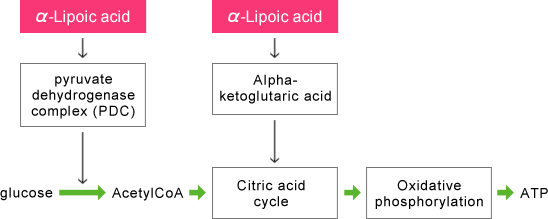
R-α-Lipoic acid (RALA)
ALA has chiral center at its C6 carbon (Fig. 2), therefore there are two kinds of enantiomers, R-lipoic acid (RALA) and S-lipoic acid (SALA).
Racemic compound which is a mixture of RALA and SALA has been industrially available in the market, but only RALA exists in the nature and is active in cells as Coenzyme.
It is technically possible to separate RALA from racemic ALA. But RALA is unstable compound compared with racemic mixture, and it is decomposed into polymer under the heated or acidic conditions very easily. For this unstable nature of RALA, it has been difficult to use RALA in nutraceutical fields even though it is the only active lipoic acid.
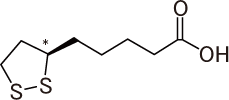
RALA-CD development
CycloChem has succeeded in the development of RALA / cyclodextrin complex (RALA-CD) using our original cyclodextrin complexation technology.
RALA is included in the cavity of Cyclodextin and protected from the circumstances which can be decompose RALA (Fig. 3). RALA-CD is perfectly stable against heat and acidic conditions like in human stomach. Now, RALA is available as functional food materials in nutraceutical fields as RALA-CD from October 2010 by CycloChem Bio Co., Ltd..
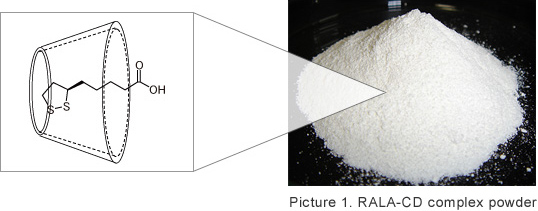
Stability of RALA-CD (Heated condition)
Result
After treatment of RALA for 2 hours under heated and humid conditions, considerable decomposition of RALA was observed.
Sodium salt of RALA which is commercially available in USA as "stabilized RALA" was also decomposed.
Only RALA-CD could keep RALA 100% stably in the cavity of Cyclodextin.
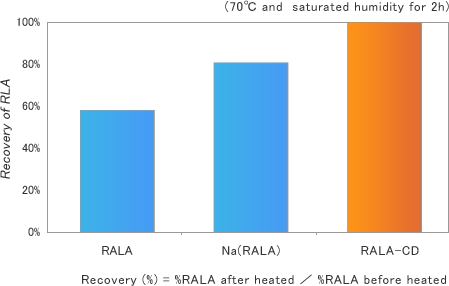

Stability of RALA-CD (Acidic condition)
Result
RALA was polymerized immediately when RALA was put into the acidic test solution, and it recovery was only ca. 40%.
RALA-Na was better than RALA itself, but it showed similar tendency as RALA.
On the other hand, 100% recovery was observed at RALA-CD.
RALA was kept in the cavity in Cyclodextrin perfectly stably.
